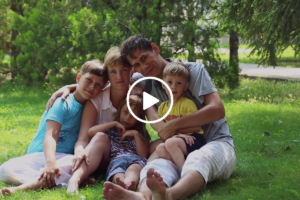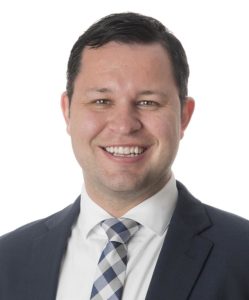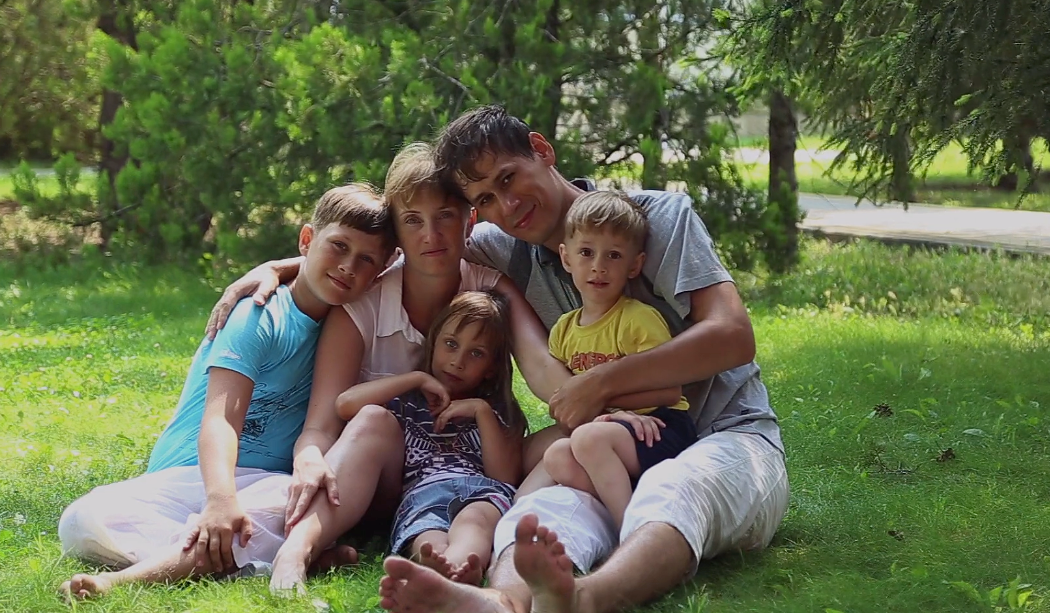NSW adviser Elliot Watson and his team have released details of a claims case study involving one of their client families. While the nature of the event and its aftermath is tragic, this case study highlights the critical value of financial advice and how it can deliver quality of life outcomes for insured lives and their loved ones…
“I want to make sure the kids have the same quality of life as if their father was still alive.”
This is what Debbie*said to us after the tragic death of her husband Gary. A desire only made possible by the personal insurance policies Debbie and Gary were advised to take out by their financial adviser just months before the tragic accident that claimed Gary’s life. This case study highlights the importance of personal insurance advice and the profound difference it can make should the unthinkable happen.
Backstory
Debbie (39) and Gary (40) were high school sweethearts and parents of three young children all under the age of 12. New clients to Elliot Watson Financial Planning in early 2019, they saw financial adviser Elliot Watson to discuss their unique circumstance. Real go-getters these clients had in recent years borrowed money and purchased several rental properties. They were working hard towards growing their wealth. They had purchased two of the rental properties in their self-managed super fund and were fully geared (i.e. had borrowed the full amount). This had increased their total debt to $1.4 million.
At their initial meeting they were excited to talk about wealth creation strategies. However, their adviser noticed some gaping holes in their financial affairs. Debbie and Gary’s wills didn’t reflect their current circumstances and they had low quality personal insurance with long wait periods that provided just under $1 million worth of cover. Not enough to pay their debts should something happen to one, or both of them. Their adviser explained “that while it’s not exciting, it is important that we protect the present first, and build for the future second. You will be grateful to have insurance if it’s ever needed, and very regretful if something happens and you don’t have it”.
Debbie and Gary were hesitant to pay for insurance, but their adviser’s comments rang true for them. After their adviser explained the impacts of not having a personal protection plan, they decided it was important to proceed and get quality insurance to protect themselves and their family. It was agreed to implement the comprehensive financial planning advice in stages as there was quite a bit of work involved. The plan was to implement personal insurance, then estate planning, personal investments, and investment for SMSF in that order.

In their advice meeting, the trade-offs between stepped and level premiums were discussed. Long conversations were held about the pros and cons of having $1.5 million sum insured on level premium versus $2 million sum insured on stepped premium and the decision was made to go with $2 million stepped. All the participants in the meeting noted that the probability of a claim was low.
| OPTION | SUM INSURED | PREMIUM | BENEFITS |
| 1 | $1,500,000 | Level | Cheaper premium over the long term |
| 2 | $2,000,000 | Stepped | Cheaper at the start and increases as you get older. |
Both Debbie and Gary had existing insurance policies that they had taken out long ago with a bank adviser. Debbie only had total and permanent disability (TPD) cover with a ‘homemaker’ classification but had returned to the workforce several years ago and was back working full time. Both insurance policies were a poor fit for the clients’ current circumstances, and provided low quality cover, long waiting periods (Gary’s income protection had a two-year waiting period) and provided just under $1 million worth of cover.
Debbie and Gary agreed to take out $2 million worth of cover, achieved a 90 day wait period covered to age 65, instead of a 2-year waiting period to age 65. A bonus life policy was included in the income protection of $125,000 tax free.
Debbie also had a back exclusion and mental health exclusion with her existing covers. We liaised with multiple insurance providers (existing and competitors) to have exclusions removed and were successful in having the back exclusions removed however the mental health exclusion was retained. The new policies were finalised shortly after in August and November 2019 (due to waiting on medical reports).
| GARY | PREVIOUS | RECOMMENDED |
| Life | $1,092,953 | $2,000,000 |
| TPD | $1,081,800 – Own | $2,000,000 – Own |
| Trauma | $243,097 | $200,000 |
| Income Protection | $12,033 – Indemnity
2 years / Age 65 |
$10,000 – Agreed
90 days / Age 65 |
| DEBBIE | PREVIOUS | RECOMMENDED |
| Life | $534,822 | $1,750,000 |
| TPD | $522,666 – Homemaker | $1,750,000 – Own |
| Trauma | $243,097 | $200,000 |
| Income Protection | Nil | $4,290 – Agreed
90 days / Age 65 |
Estate planning
It was identified that the clients had completed basic wills (husband to wife and wife to husband) in 2014 when their wealth position was much more modest and there much less debt. At the time of the accident, we had not yet reached the next step of redoing their wills. Had Debbie been the one killed in the accident there would have been big implication for the family with taxation issues.
The accident
Not long after the completion of their insurance policies, Debbie and Gary went on a special holiday to QLD to celebrate their 40th birthday together and the children stayed with family. After a brunch at a local café, while holding hands crossing the road, they were involved in a freak and fatal accident – struck by a speeding car.
Gary died at the scene and Debbie was air lifted to Brisbane in an induced coma in a critical condition with head, pelvis, and spinal trauma. Debbie had a severed nerve in her lower spine, and they anticipated she could be a paraplegic and suffer mental impairment from her head injuries.
After the accident
When Debbie regained consciousness, she started to process the enormity of her family’s loss. Her mind turned to survival, and what the financial impact would be on her family with the loss of her husband, and the potential she could never work again.
Did we get all the insurance completed? Are we covered? Will the kids and I have enough? Will we lose the house? I need to speak with Elliot.
When we were notified of the accident, we immediately commenced the claims process on behalf of our clients. Not long after arriving home from hospital our adviser met with Debbie at her home where she expressed her greatest worry was supporting her family both financially and emotionally.
“I just want to know, will we run out of money and are we going to lose the home?”.
“I want to make sure the kids have the same quality of life as if their father was still alive”
Our adviser was able to reassure Debbie and stepped her through all the policies that had been put in place and what they could claim. By the end of the meeting, after wiping away many tears, Debbie was extremely grateful to know that her family was going to be, at least, financially ok.
“I am so glad that we met you, without you our lives would have been completely different.”
Money in the meantime after accident
The immediate concern was ensuring the family had money in the meantime while insurance claims were being finalised. The family’s local community were kind enough to set up a fundraiser and raised $60,000. Gary’s boss paid a bonus salary to the family as a compassionate payment, and Debbie’s work agreed to pay her sick leave for three months while she was off which they did not have to do. This all helped ensure there was no disruption to the family until the compulsory third party (CTP) insurance payments kicked in and covered medical costs and a wage.
Claims and delays
The months following the accident were difficult for the family. As a business Elliot Watson Financial Planning tried to make things as easy as possible for the family. Meetings were always held at the client’s home, and we were proactive as possible doing as much of the thinking, planning and paperwork for Debbie as possible. Unfortunately, there were delays with completing claims as there was an ongoing police investigation around Gary’s death and Debbie did not know all the passwords to the family’s accounts from memory. The information to access the passwords was stored on Gary’s phone which was still in the possession of police as evidence.
There was also a delay with Debbie’s trauma claim. Despite Debbie requesting her medical reports before leaving hospital, the request was not honoured. The hospital was in the midst of responding to COVID-19 and Debbie’s request for her medical reports slipped through the cracks. The insurance company was compelled to write to the hospital and request the medical reports – this process held up the claim for many months.
Elliot Watson Financial Planning managed five claims and liaised with CTP agencies. The claims included:
- Income protection claim for Debbie
- Trauma claim for Debbie ($20,000 partial payout)
- Death claim for Gary ($2,000,000)
- Income protection claim for Gary ($120,000)
- Industry super application
The total funds from insurance claims came to just over $2,200,000. Money that they family will rely on to provide for them for many years.
| INSURANCE | FUNDS |
| Compulsory Third Party (CTP) | $125,000 |
| Trauma | $20,000 |
| Death Claim | $2,000,000 |
| Income Protection – Gary | $120,000 |
| TOTAL INSURANCE CLAIMS | $2,265,000 |
Had the couple not reviewed and improved their insurance policies the total funds the family would have to live off would be over $1million less.
Ongoing advice
Part of Elliot Watson Financial Planning’s future role is to help Debbie and her children to set new goals for their life without the support of their husband and dad. COVID-19 has impacted the timing and completion of many of the tasks in relation to property valuations for probate, making a stressful situation for Debbie even more stressful.
Ongoing financial advice is crucial for clients as it helps to review existing life goals and create new goals to work towards. Despite the major unforeseen tragedy of losing her husband, we continue to work with Debbie to review her existing goals and set new goals. Debbie has a new goal of building or buying a new family home that is disability friendly and has less yard for Debbie to maintain. Another key focus is reducing stress in Debbie’s life by resetting her investments to give Debbie time to focus on her physical and mental recovery and to spend more time with her children. Debbie would also like to develop a future return to work plan, for when she becomes physically capable of doing so.
Between Debbie and her children, they have just over $2.2 million which needs ongoing financial management. Money that the family will rely on to support themselves for many years. Had the couple not reviewed and improved their insurance policies they would have had over $1 million less. The combination of policies they took out has protected their family’s income in multiple ways – with a claimable life insurance policy for Gary and trauma and income protection policies for Debbie.
Since the accident Debbie has regained movement in her legs and avoided any brain damage. She has been informed she needs a pelvis and hip replacement and will require ongoing modifications to her car and home to help her mobility. It is anticipated that she may be able to return to the workforce sometime in the future if she continues her recovery path, however she will have a permanent disability. COVID-19 has disrupted plans for her surgery, and she is still on a waiting list.
We provide Debbie and her children with ongoing financial advice to help manage their portfolio, debt, and investments. Income protection payments combined with the invested life and trauma insurance payouts provides an income of $160,000 per year. This achieves Debbie’s goal of providing the family with a quality of lifestyle equal to that they would have lived had their husband and dad still been alive.
In conjunction with our estate planning specialist, Debbie’s will has been updated to reflect her new situation and circumstances and appropriately provide for her children should something happen to her.
Conclusion
The advice provided to Debbie and Gary at their initial appointment, and the extra time taken to highlight to them the importance of personal insurance has, and will continue to have, a profound impact on the quality-of-life Debbie and her children live. Without their improved personal insurance policies, Debbie and her children would be in a much more dire financial position, with the very real prospect of losing their home. The importance of personal insurance, and the impacts of having it or not, should not be undersold.
Life changing advice that will last a lifetime.
The information within, including tax, does not consider your personal circumstances and is general advice only. It has been prepared without taking into account any of your individual objectives, financial solutions or needs. Before acting on this information you should consider its appropriateness, having regard to your own objectives, financial situation and needs. You should read the relevant Product Disclosure Statements and seek personal advice from a qualified financial adviser. The views expressed in this publication are solely those of the author; they are not reflective or indicative of licensee’s position and are not to be attributed to the licensee. They cannot be reproduced in any form without the express written consent of the author. Elliot Watson Financial Planning Pty Ltd ABN 70 610 168 646 is a Corporate Authorised Representative of RI Advice Group Pty Ltd, ABN 23 001 774 125 AFSL 238429
 Elliot Watson is the Managing Partner of Elliot Watson Financial Planning. He is an award-winning Certified Financial Planner (CFP) with a particular interest in growing wealth and minimising financial risk through personal insurance…
Elliot Watson is the Managing Partner of Elliot Watson Financial Planning. He is an award-winning Certified Financial Planner (CFP) with a particular interest in growing wealth and minimising financial risk through personal insurance…
*Names and some details in this case study have been changed to respect the privacy requested by the family.








Great story, and well done Elliot. I would like to think that I would have done more or less the same and provided that after claims advice and service that is so important.
Sadly, there are always cases like this were the clients either refuse the advice or modify the advice based on their idea of cost of premiums, not the cost of not having such well structured cover.
About 20 years ago, here in Canberra, a well-known solicitor couple and their three children are involved in a horrible car smash on the old Hume Highway approaching Tarcutta from South. The end result was the immediate death of the two solicitors, who worked in the same firm, and the death of their eldest child. Two children survived.
That particular couple, I discovered later in conversations with colleagues, had been visited by a number of local advisers and had on each occasion declined to institute cover because they felt the premiums were too excessive. Apparently they repeatedly rejected advice on the basis of “it would never happen to us”
They left a mess. Fortunately, for the two surviving children at least, the deceased couple had friends in the big end of town, and in particular at our local newspaper, the Canberra Times. The Canberra Times organised to set up a fund to raise money for the children, and this was before the days of online crowd-funding. I can’t exactly recall the figure that was raised but it was at least over $100,000, and most of it was in large sums. I seem to recall the Canberra Times saying that after the fundraising completed, the significant family home in an affluent suburb was sold off, minus the payment of the mortgage, providing just a little more additional funding, because, guess what, they were highly geared.
The end result was that the two surviving children moved to Melbourne with relatives, away from any friends, and brought with them sufficient funds to go through the appropriate private schools in Melbourne. The would be adults now, and I occasionally wonder if they have a life insurance program. Experienced life risk advisers know that it’s always a tough ask to convince people earning good money, with an affluent lifestyle, to consider putting aside some of their hard earned to create a program that allows the family lifestyle to continue if a disaster should strike. And the irony is, that the more qualified they are, the harder they are to convince..
This article of course is preaching to the converted. What needs to happen in this country is to firstly recognise that life risk advice of this complexity and value can only be provided by a life risk Specialist, not someone who “dabbles” in the occasional life risk sale after providing investment advice, and who is scared by talking cover in millions not thousands.
Also what needs to happen is that advisers who provide such complex strategies and advice are remunerated properly. Even on 60%, the the remuneration on the program instituted by Elliott would probably not recompense him fully for the work before and after the disaster.
Yet as we speak, it’s ” London to a brick on open” that most of our gutless life insurance CEOs are not talking to the current review about increasing commissions back to 80/20 and reducing that clawback back to its rightful one year, as advocated by the AFA last week.
Comments are closed.